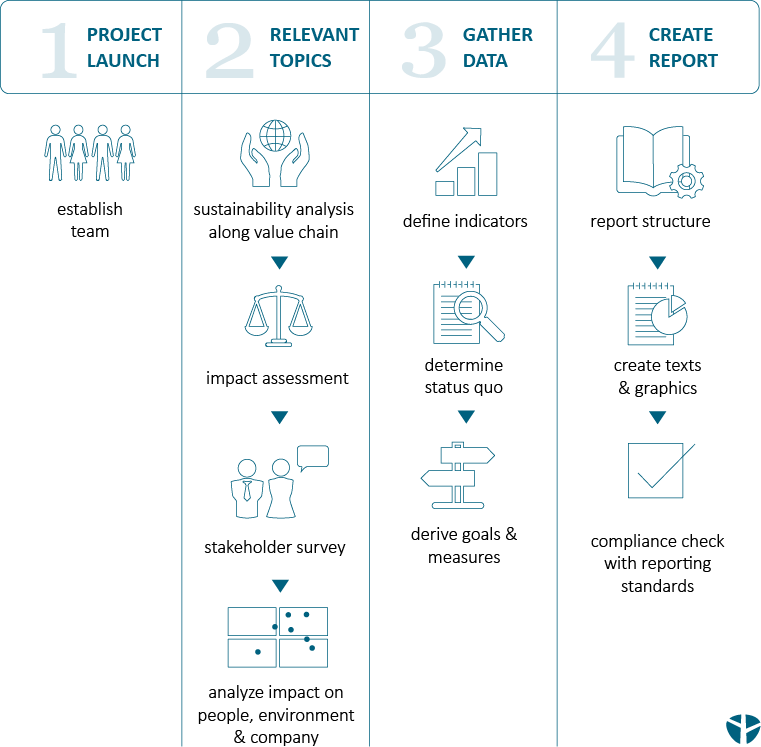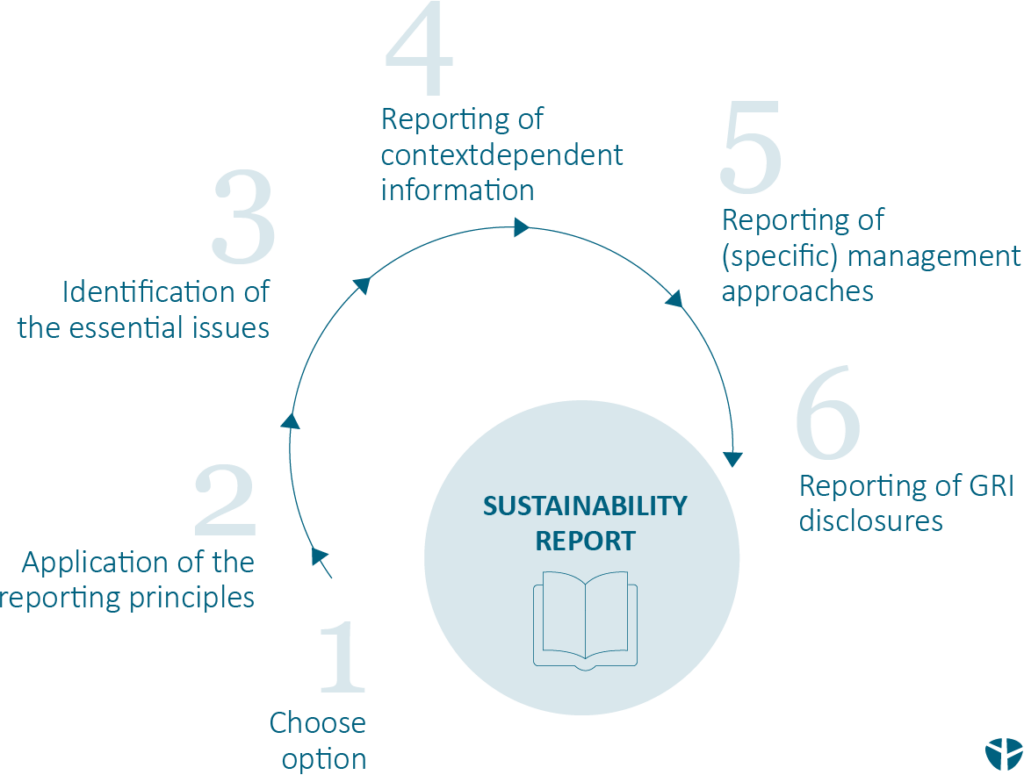FAQ
Frequently asked questions on sustainability reporting and standards
How do you create a sustainability report?
Sustainability reporting must always be preceded by defining the most relevant sustainability topics – a so-called materiality analysis. In addition, data management is important to be able to collect non-financial KPIs on sustainability. Sustainability reporting can be conducted according to different sustainability reporting standards such as GRI or the integrated reporting framework.
What should be included in a sustainability report?
A sustainability report encompasses all elements of solid ESG management: A report requires the identification of material environmental, social and ethical topics. It depicts KPIs and the current management approach and discloses sustainability strategies and targets. Furthermore, a report requires an organizational set-up (ESG Governance).
What is GRI sustainability reporting?
A sustainability report in accordance with GRI Standards meets a certain quality standard. GRI reporting means that the report contains various information specified by the Global Reporting Initiative.
If your organization would like to create a GRI compliant report, two options are available (from reporting year 2022: “In accordance with GRI” and “With reference to GRI”), which depend on the degree to which the standards have been met. Reporting is a process that evolves over time. Companies that are publishing an initial report or find themselves in the early stages of reporting should therefore start with the option “With reference to GRI”.
It should be noted that sustainability reports for the year 2022, which will be published in 2023, must implement the new GRI Universal Standards (2021) for the first time. We are looking forward to assisting your organization with the implementation of the new standards.
In which case do I need a GRI-compliant ESG report?
If you want to publish an ESG report according to an internationally established and recognized reporting standard, GRI is the optimal choice. Reporting based on GRI can provide the depth of disclosure that all of an organization’s stakeholders request. In addition, GRI prepares you well for the future reporting requirements imposed by the CSRD.
Depending on various circumstances, further standards can be considered. For instance,
- SASB / IFRS / Value Reporting Foundation for companies with activities in North America,
- TCFD for a focus on climate risks, or
- sectoral standards (e.g. EPRA sustainability standards for reports in the real estate sector)
How can we create a GRI-compliant report?
If your organization would like to create a GRI-compliant report, two options are available (from reporting the year 2022: „In accordance with GRI“ and „With reference to GRI“), which depend on the degree to which the standards have been applied. Reporting is a process that evolves over time. Companies that are therefore publishing an initial report or find themselves in the early stages of reporting may start with “With reference to GRI”.
It should be noted that sustainability reports for the year 2022, which will be published in 2023, must implement the new GRI Universal Standards for the first time. EY denkstatt is looking forward to assisting your organization with the implementation of the new standards.






